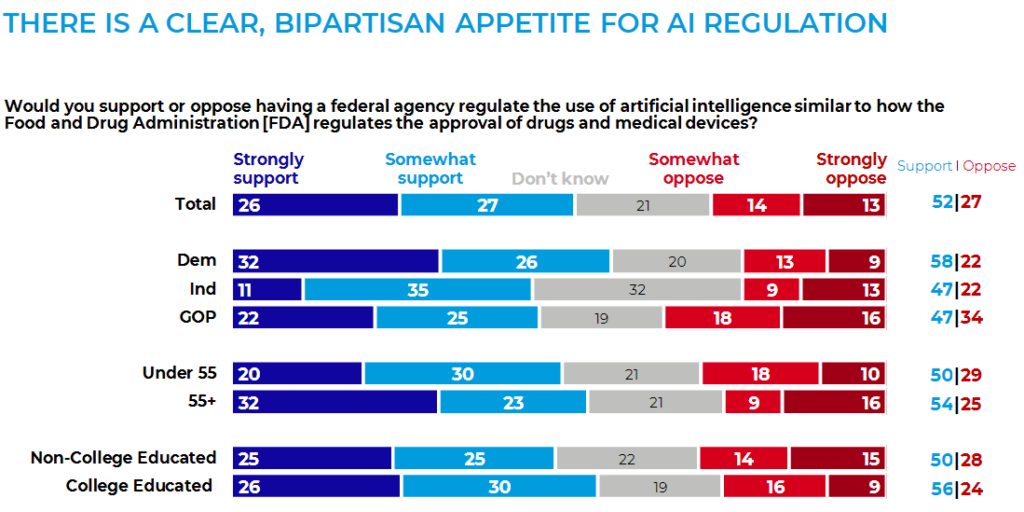
Artificial intelligence (AI) is fundamentally changing the economy, politics, and the workplace. We’re at the very beginning of understanding the potential outcomes and consequences of widespread AI adoption. To better understand Americans’ familiarity with and baseline perceptions of AI and what’s next, Global Strategy Group conducted an online survey of 1,000 registered voters nationwide.
We found illuminating information about what people know and believe about this technology, how we should be regulating it, and how it will affect jobs in the future. Below we answer a few of the most burning questions:
What do voters think about AI?
Despite the rise in coverage about AI, few voters are following the story closely, and many remain unfamiliar with generative AI tools like ChatGPT. When prompted, the survey found that many voters are reflexively skeptical and concerned about generative AI tools with the ability to mimic human language, with 44% believing the technology will harm humans’ quality of life, compared to just 20% who believe these tools will help humans’ quality of life.
What do voters think the government should do about AI?
There is bipartisan support for federal regulation of AI – in fact, 52% of voters support having a federal agency regulate the use of the technology and only 27% oppose the idea.

What do voters think companies should do about AI?
Public skepticism of AI is high, so businesses using the technology need to address the trust deficit. A majority of Americans (54%) think that technological advancements in AI will lead to fewer jobs for people, and only 12% of voters say they would trust companies that rely mostly on AI more than companies that rely mostly on people.
However, those more familiar with AI are more likely to embrace the technology and recognize its potential for positive impact, as 43% of voters who are familiar with tools like ChatGPT, Google Bard, and Dall-E think companies should not ban generative AI tools at work, compared to only 18% of voters who are unfamiliar with these tools. Simply put, proactive efforts to familiarize and educate the public about the opportunities presented by the technology will be paramount to increasing public sentiment as we all continue to wade into the AI space.
No Fields Found.